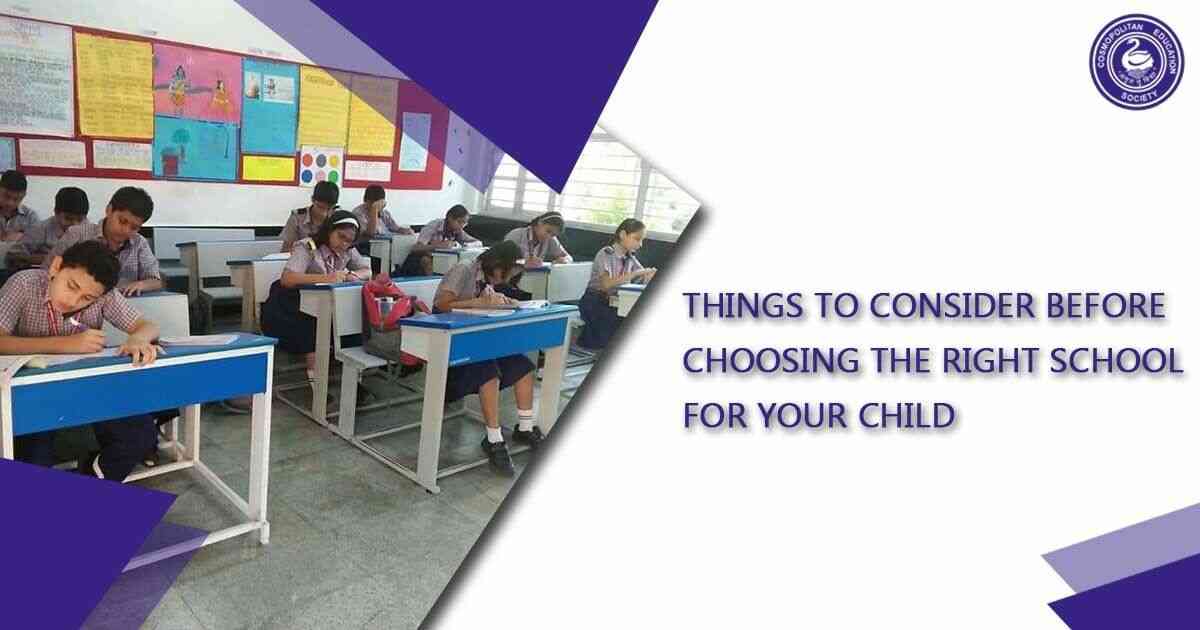5 Things To Consider Before Choosing The Right School For Your Child

Not only Preschool but also Schools are the critical building blocks of our child’s academics.
Not only Preschool but also Schools are the critical building blocks of our child’s academics. An average child spends more time at school compared to his/her own home. Therefore, it’s a vital decision a parent needs to take before choosing the right school that not only blends well with your child’s personality but also fits yours as a parent. Schools all around you provide different facilities and also teach in various boards, hence these 5 parameters you must keep in mind before selecting a school for your child.
1. Proximity From Home: In today’s times, traveling within city limits is no more pleasurable. We all are well aware of how traffic can tire you out while you’re just sitting. Additionally, it takes extra time to reach your destination today compared to years back. Commuting 10-15kms one-way to school and back is not what we recommend. When will your child reach home for rest and homework? It will seem like a 9 am-5 pm task for the. Ensure your child is at his/her optimum energy levels when they reach school but considering proximity from your residence to the school.
Our Advice: Look for a school that is not too far and takes a maximum of 30 minutes to reach.
2. Faculty Proficiency: Faculty proficiency is the most critical parameter you must consider before choosing a school for your child. There are various online mediums you use to access the faculty capabilities of a respective school.
Firstly, you can check out online reviews of the school and its teachers. Secondly, the school’s website shall give you enough information on the background of the faculty they hire. The website will also help you gain information if the school is technically upgraded with respect to current technology, the learning philosophy they follow in their school. Lastly, if you have some children around your residence who go to the same school, try to talk to their parents and understand their view of the school. If you’re lucky enough, talk to a teacher directly if you can.
Our Advice: The online spectrum is an excellent medium to research. How proficient faculties in a school are.
3. Extracurricular Activities: Co-curricular/Extracurricular activities are as important as academic education for a child’s overall growth. Do your research by finding out if the school encourages the same. Look if the school has a playground for sports. Also, look upon the net if the school has its own festival or annual day, etc. Many schools today have included yoga, martial arts, music, dancing, cooking, etc as a period along with their yearly curriculum.
Our Advice: Select a school based on your child’s interest. If he/she is fond of sports and you send them to a school which follows the “no play only study curriculum” they won’t enjoy school life.
4. The Board of Education: All education boards do not work in parity with the other when it comes to curriculum. Hence, once you choose a particular education board, there are fewer chances of you switching midway. Before you enroll your child in a school, ensure you have read enough about the education board. This shall keep you prepared for activities and curriculum-linked to that particular board.
Our Advice: Read up on various education boards and look through their advantages and disadvantages. Select one which suits you and your child best.
5. Student-Teacher Ratio: School is the building block for your child’s academic career. Hence, a Student-Teacher ratio needs to be one of the last but also an important ratio for you as a parent. Your child as an individual would need attention, guidance while doing something wrong and also affection when done something well. Though you can’t expect individual attention from the teacher in class at least a smaller number of students will help. This will ensure a teacher is concentrating on each child with due diligent time. A class with 60 children is just like a child attending a seminar in an auditorium.
Our Advice: We recommend a classroom must have 1 teacher per 15 students. I.e. maintain a healthy Student-Teacher ratio of 15:1.
By keeping these suggestions under your sleeve, you will be better equipped to make an informed and intelligent choice for your child.

